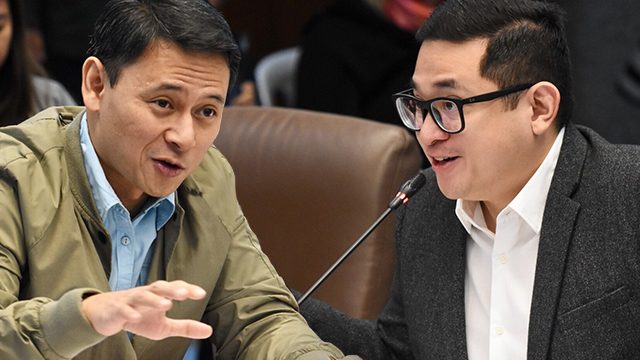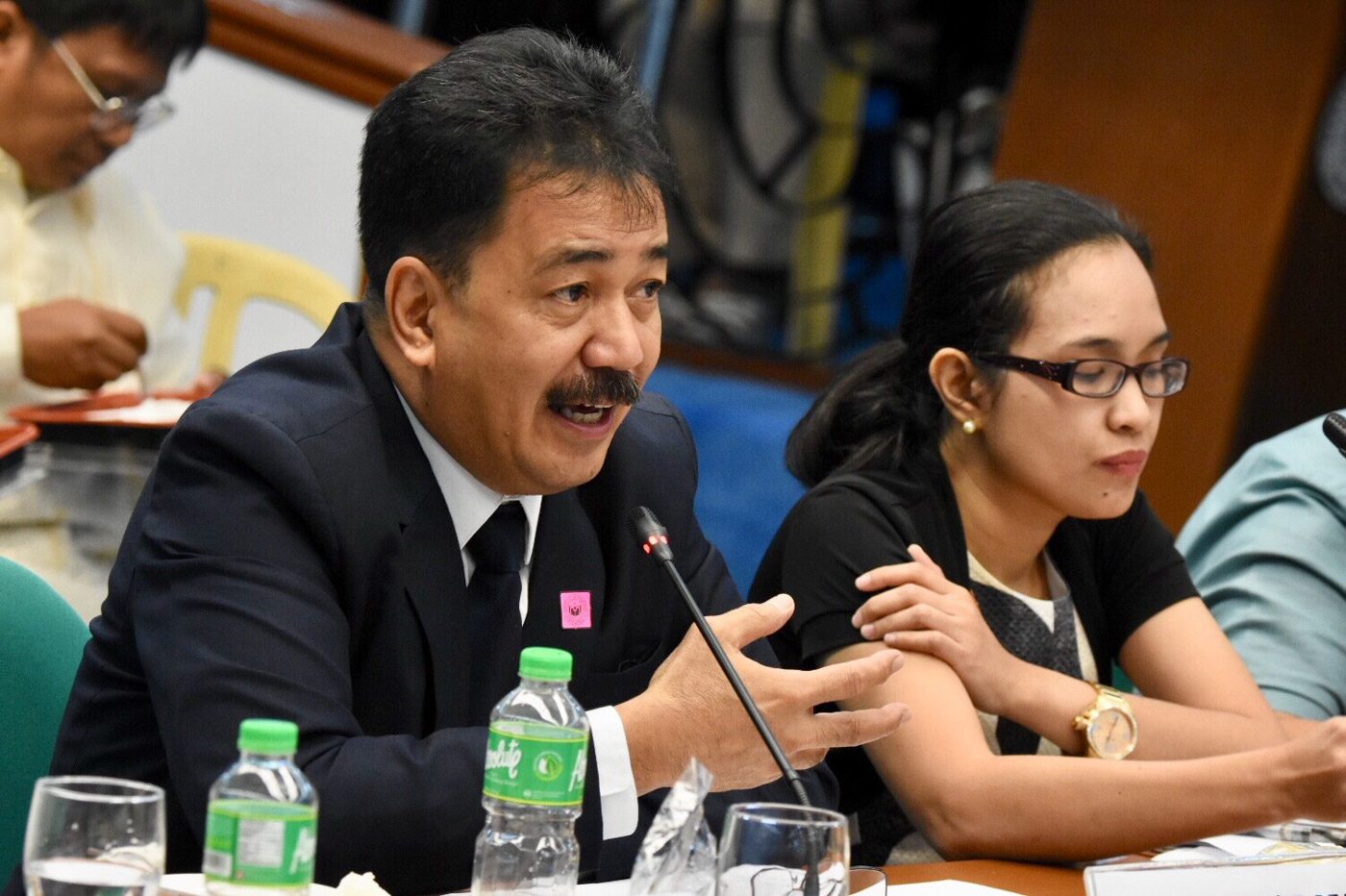SUMMARY
This is AI generated summarization, which may have errors. For context, always refer to the full article.

MANILA, Philippines – Senators seek to place a provision in the 2019 budget that would ensure scholars of existing student financial assistance programs (StuFAP) under the Commission on Higher Education (CHED) are covered by a new program under the recently-created free higher education law.
The CHED told senators on Thursday, September 20, that the budget for existing student aid programs had supposedly been cut by about P3 billion.
During the hearing, CHED Officer-in-Charge Prospero de Vera III highlighted the “very big cuts” for StuFAP programs. The proposed budget for these P1.7 billion, down from P4.73 billion in 2018.
He also previously told lawmakers in the House of Representatives that the StuFAP “has been reduced very dramatically from last year.”
Among the student aid programs affected by the cuts were the Pamana funds for the scholarships of children of rebel returnees, and the Tulong Dunong program, which gives financial aid of about P12,000 annually to deserving students, covering tuition, cost of living, books, and transportation.
“We can make an amendment in the GAA (General Appropriations Act) to give them some flexibility…. Recipients currently studying should also be given priority,” Senator Juan Edgardo Angara told reporters on the sidelines of the CHED’s budget hearing on Thursday.

Budget not enough? The Department of Budget and Management earlier clarified the lower allocation for StuFAP programs were not cuts but alignments of several scholarship programs under the free higher education law.
Senator Paolo Benigno Aquino IV also sought to clarify this when he asked the CHED if the “absolute amount” for existing scholarship programs was smaller than the P16 billion budget given to the tertiary education subsidy (TES) program in 2018.
“Previous to 2017, all of these scholarhsips were lodged in other agencies. With the big allocation in CHED, they’re rationalizing everything…. If you add all of the scholarships of all these agencies, it’s still less than P16 billion?”
To this, De Vera answered: “Yes.”
Because of this, senators raised the possibility of placing a consideration in the 2019 budget to give the CHED “leeway” to prioritize continuing student beneficiaries of the programs.
“Maybe we can ask if we can put an asterisk in the GAA where we fund this – anyway it’s also a law – maybe that would be enough to give some flexibility on the provision of the territory education subsidy,” Aquino said.
De Vera had said the “wording” of the free higher education law did not allow the CHED to prioritize continuing scholars.
Currently, the TES’ beneficiaries are divided among those who are part of the Expanded Students Grant-in-Aid Program for Poverty Alleviation Program (ESGP-PA), the Despartment of Social Welfare and Development’s Listahanan 2.0 list for 4Ps families, and students enrolled in private universities in areas where there are no state or local universities and colleges.
De Vera said a provision in the 2019 budget as proposed by senators would be “appreciated” by the CHED.
What is the tertiary education subsidy? The tertiary education subsidy differs from the free tuition scheme. It is a program under the same law, which supports the cost of tertiary education by providing allowances for books, transportation, boarding, and supplies, among others.
Students from both public and private institutions can avail of the TES.
CHED earlier warned that the P16 billion earmarked for subsidy in school year 2018 to 2019, would only cover about 300,000 students. However, it said it would prioritize students “who need the assistance most.”
Budget Secretary Benjamin Diokno also said an additional P11 billion has been allocated for the TES program for the next school year. With the increase, De Vera said, about 400,000 to 500,00 students may be accomodated by the program in the coming year.
Senators and the CHED encouraged students who currently benefit from existing StuFAPs to apply to the TES program.
More than P40 billion has been allotted for the implementation of the free higher education law for SY 2018 to 2019. – Rappler.com
Add a comment
How does this make you feel?
There are no comments yet. Add your comment to start the conversation.